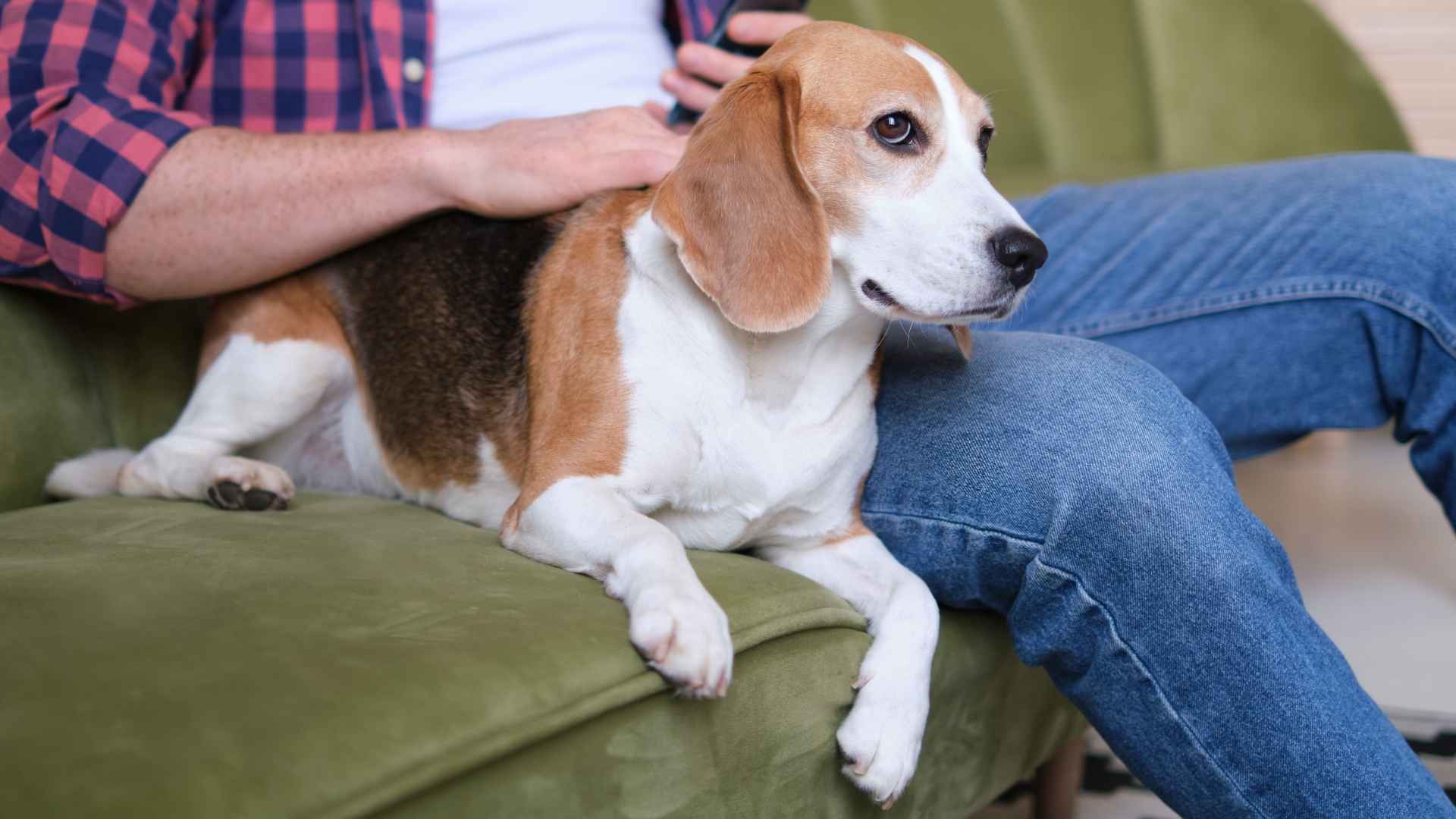Not all dogs bark, bite, or growl at the drop of a hat. Some are just naturally chill.
They walk gently, play softly, and never cause a scene. These dogs bring peace into a home, not stress. They’re perfect for families, older adults, or anyone who wants a buddy, not a bouncer. While some dogs are quick to react, the breeds we’re about to explore are slow to anger and full of heart.
They don’t need to be trained to stay calm—it’s just who they are. They’re patient with kids, friendly with strangers, and easy to live with.
And no, this list isn’t just full of small, fluffy lapdogs. You’ll find a wide range of personalities and sizes—all with one thing in common: zero aggression. So, stick around and discover the dog breeds that lead with love, not attitude.
Least Aggressive Dog Breeds
1. Labrador Retriever
The Labrador Retriever’s easygoing nature isn’t just a bonus — it’s the core of their personality. They don’t bark at every noise, they don’t guard obsessively, and they rarely show territorial behavior. Their first instinct with strangers is usually a wag, not a warning.
The go-to for good reason
It’s no coincidence that Labs are often chosen as therapy dogs. Their patience, trainability, and calm presence make them ideal in hospitals and schools, as per Freedom Service Dogs. They don’t get rattled easily, and their eagerness to please makes them quick to adapt to new environments.
Loyal, but never possessive
What sets them apart from other dog breeds is how well they balance loyalty with tolerance. Labs form strong bonds without becoming overly clingy or jealous. They’re confident in their place, and that relaxed demeanor is what keeps their temperament so stable.
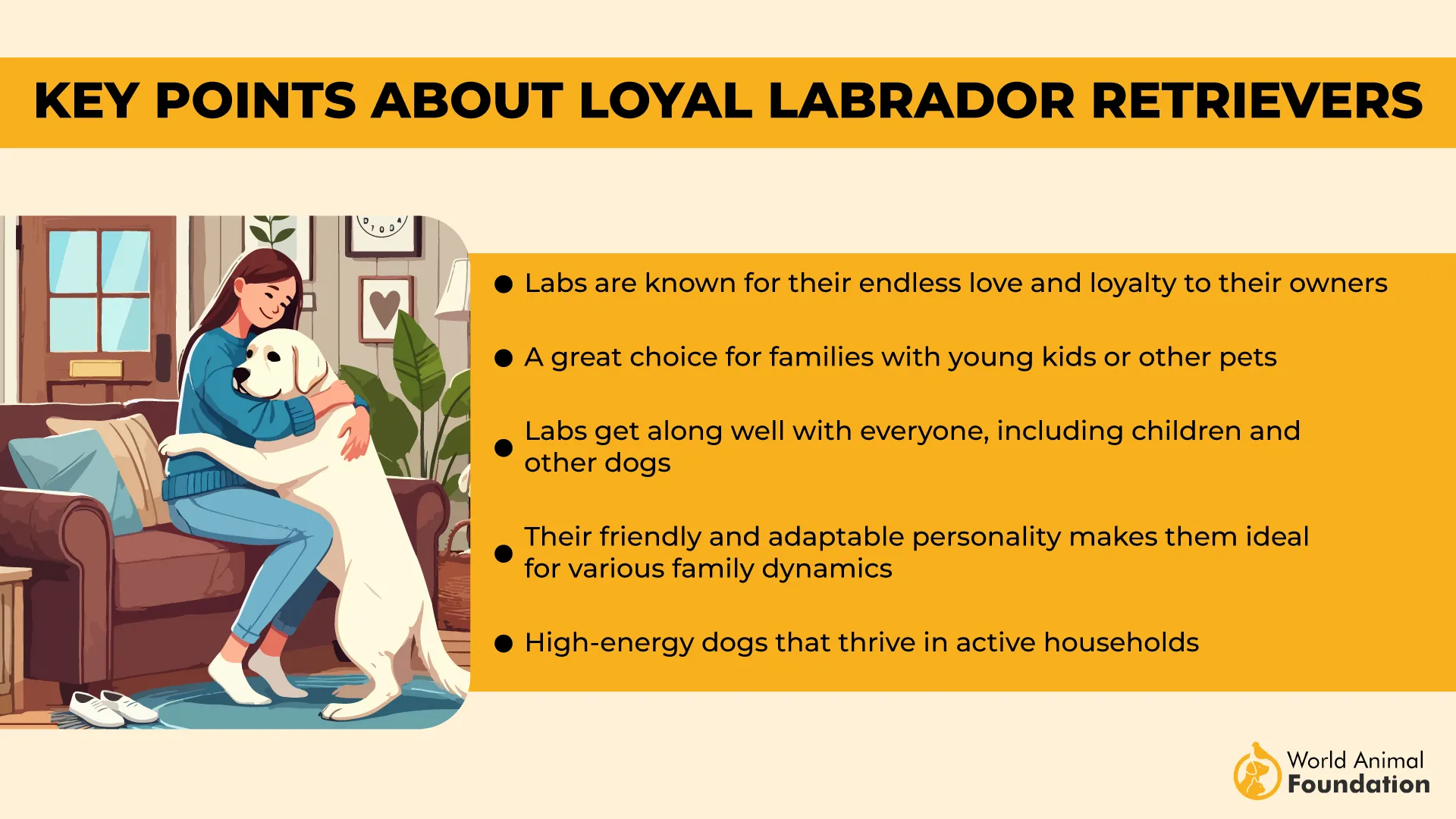
Great with families of all sizes
Labs are famously wonderful family dogs — not just because they’re gentle with kids, but because they adjust to the energy of the household. Whether you’re a quiet couple or a busy family of five, a Lab usually finds its rhythm without fuss.
2. Golden Retriever
Golden Retrievers don’t react harshly to sudden noises, fast movements, or unfamiliar touches. Their tolerance is one of the highest among breeds, which keeps them calm around children, other animals, and visitors. They rarely default to defensive reactions — even when surprised.
Built for softness, not confrontation
Everything about this breed, from its mouth to its mindset, is designed for gentleness. Goldens don’t bark out of suspicion or stare down strangers — they typically approach with relaxed body language and a loose, wagging tail. Even in high-energy situations, they maintain emotional control.
Comfortable in social chaos
In the dog world, some breeds thrive on structure and order — Goldens adapt. Whether they’re in a crowded park or a noisy living room, they stay composed and flexible. This ease in unpredictable settings makes them less likely to guard, snap, or overreact.
Calm around the ones who matter most
Purina states that Golden Retrievers are often chosen as family pets, not just for their friendliness, but for how rarely they escalate. If a child grabs their tail or another dog eats from their bowl, a Golden is far more likely to walk away than to lash out.
3. Cavalier King Charles Spaniel
Cavaliers rarely take the lead in confrontational situations. Their default setting is to follow rather than push back, making them one of the least likely breeds to snap, bark excessively, or challenge authority, as stated in WebMD.
Always eager to connect, but not correct
Their social instinct is built around bonding, not policing. Whether meeting another dog, greeting strangers, or navigating noisy homes, they approach with a gentle, tail-wagging energy that disarms tension. They simply aren’t wired to challenge or control their environment.
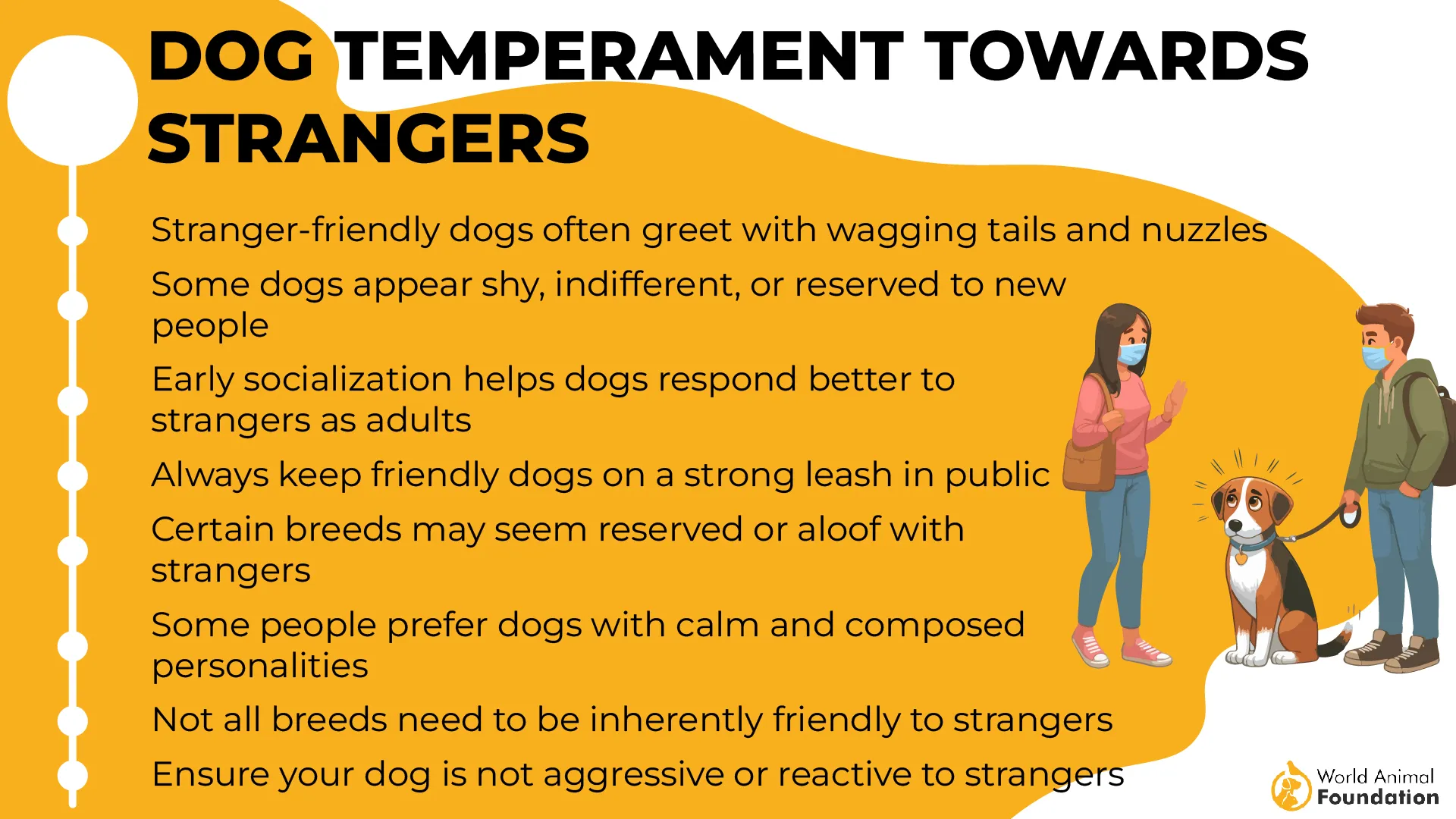
Comfortable in the background
Cavaliers don’t demand space or command attention in group settings. They’ll often find a quiet corner or gently place themselves beside someone, without interrupting or asserting. That passive, steady presence keeps things calm, especially around more dominant or reactive pets.
Emotionally synced with people
One of the reasons they rarely show aggression is that they read and mirror human energy closely. If you’re calm, they’re calm. If there’s noise or stress, they seek contact, not control. This emotional responsiveness keeps them balanced, even in chaotic spaces.
4. Newfoundland
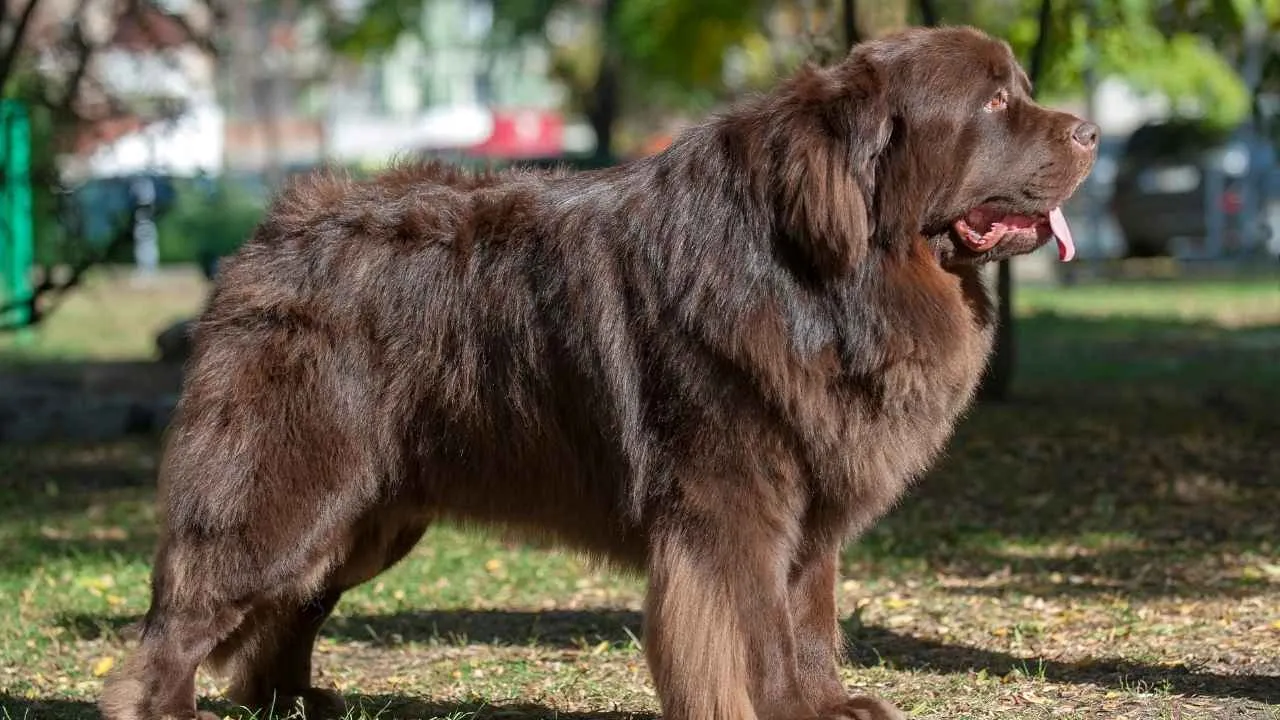
Despite their massive size, Newfoundlands are known for their gentle nature. They move slowly, react softly, and approach new people or animals with calm curiosity. Even when startled, they rarely respond with intensity — they simply pause, assess, and stay grounded.
Zero interest in confrontation
Aggression isn’t part of their wiring. These dogs are slow to challenge and even slower to escalate. Whether another pet barks at them or a child clumsily hugs them, Newfoundlands usually offer nothing more than a patient blink or a slow tail wag.
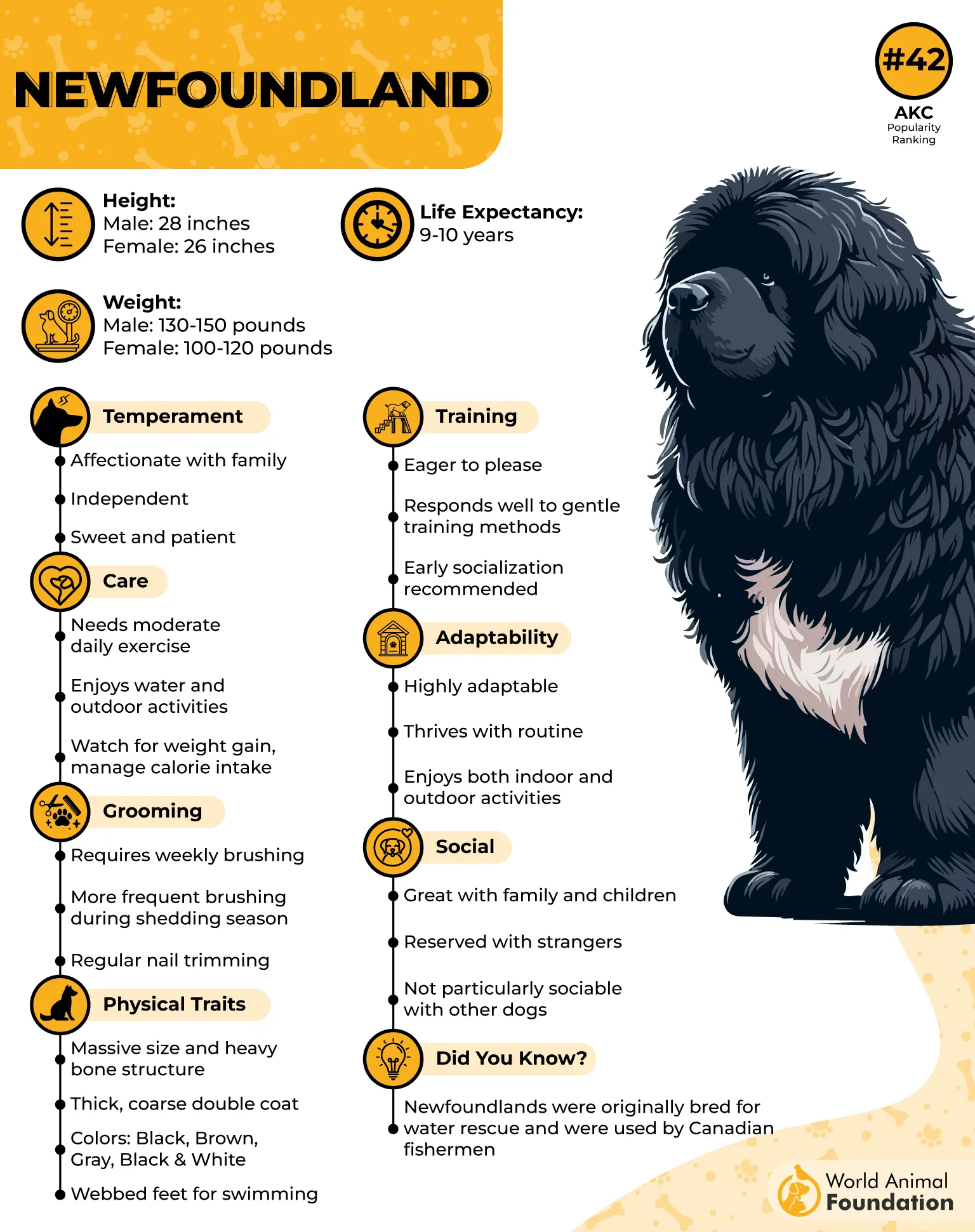
Peaceful by instinct, not training
Unlike some breeds that need firm boundaries, Newfoundlands are naturally cooperative. They don’t compete for attention, food, or toys. Their massive presence never translates to dominant behavior, which makes them one of the friendliest dogs to bring into unpredictable homes.
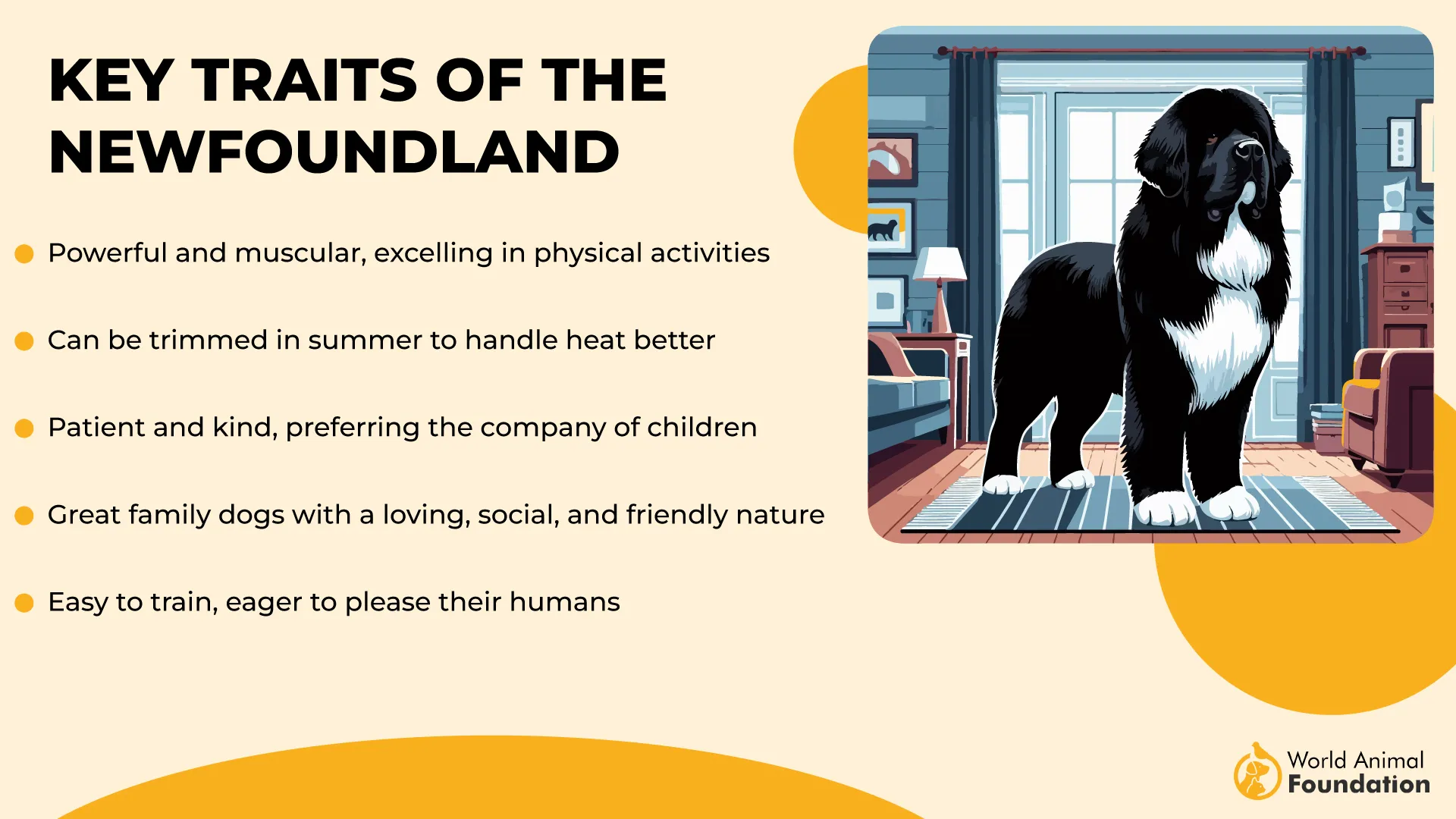
Protective but never possessive
Their loyalty doesn’t show up as guarding or tension — it’s expressed in silent following and quiet watching. As loyal breeds, they prefer to stay nearby without making a scene, showing their devotion through presence rather than territorial behavior.
5. Irish Setter
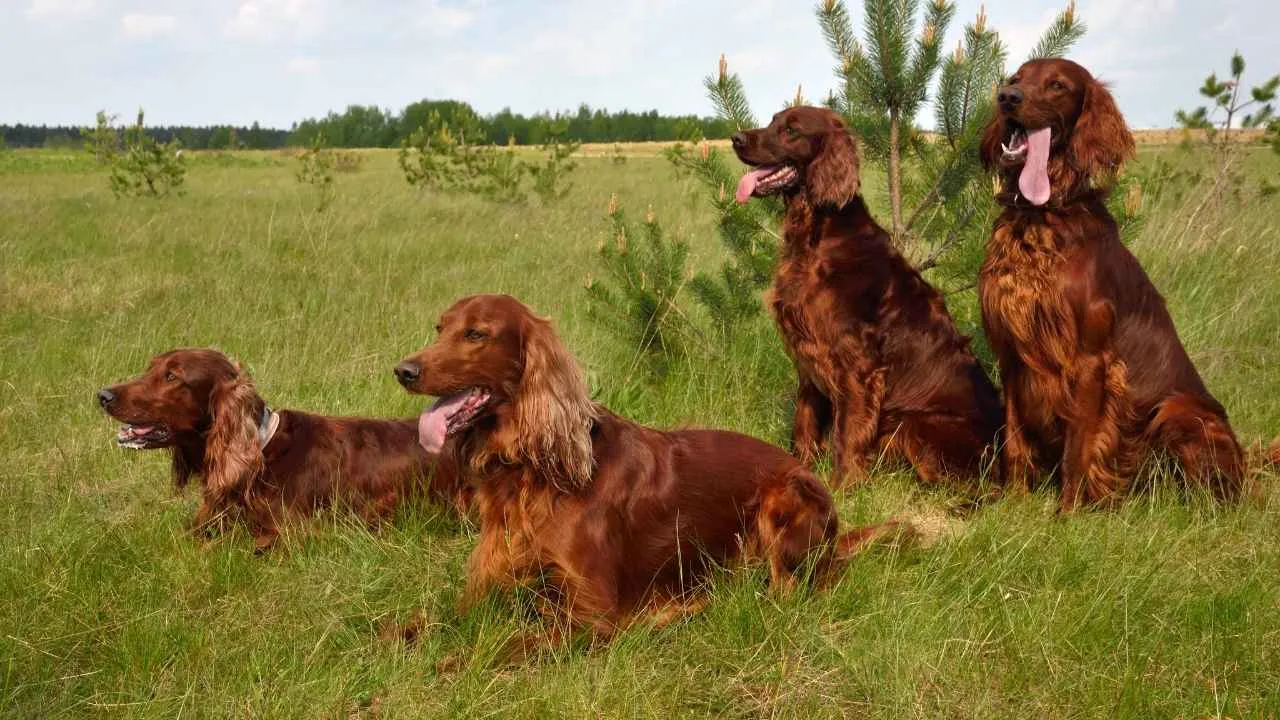
Irish Setters are known for their boundless energy, but not in a confrontational way. Instead of reacting with aggression, they channel their enthusiasm into social interactions. Whether it’s with people or other dogs, they bring a great companion vibe, full of excitement but no edge.
A deep bond with family
This breed thrives on interaction and will quickly become a beloved family member. They’re affectionate and responsive, but their eagerness to please means they’re not likely to challenge authority. Their affection isn’t possessive — it’s more about shared experiences and mutual respect.
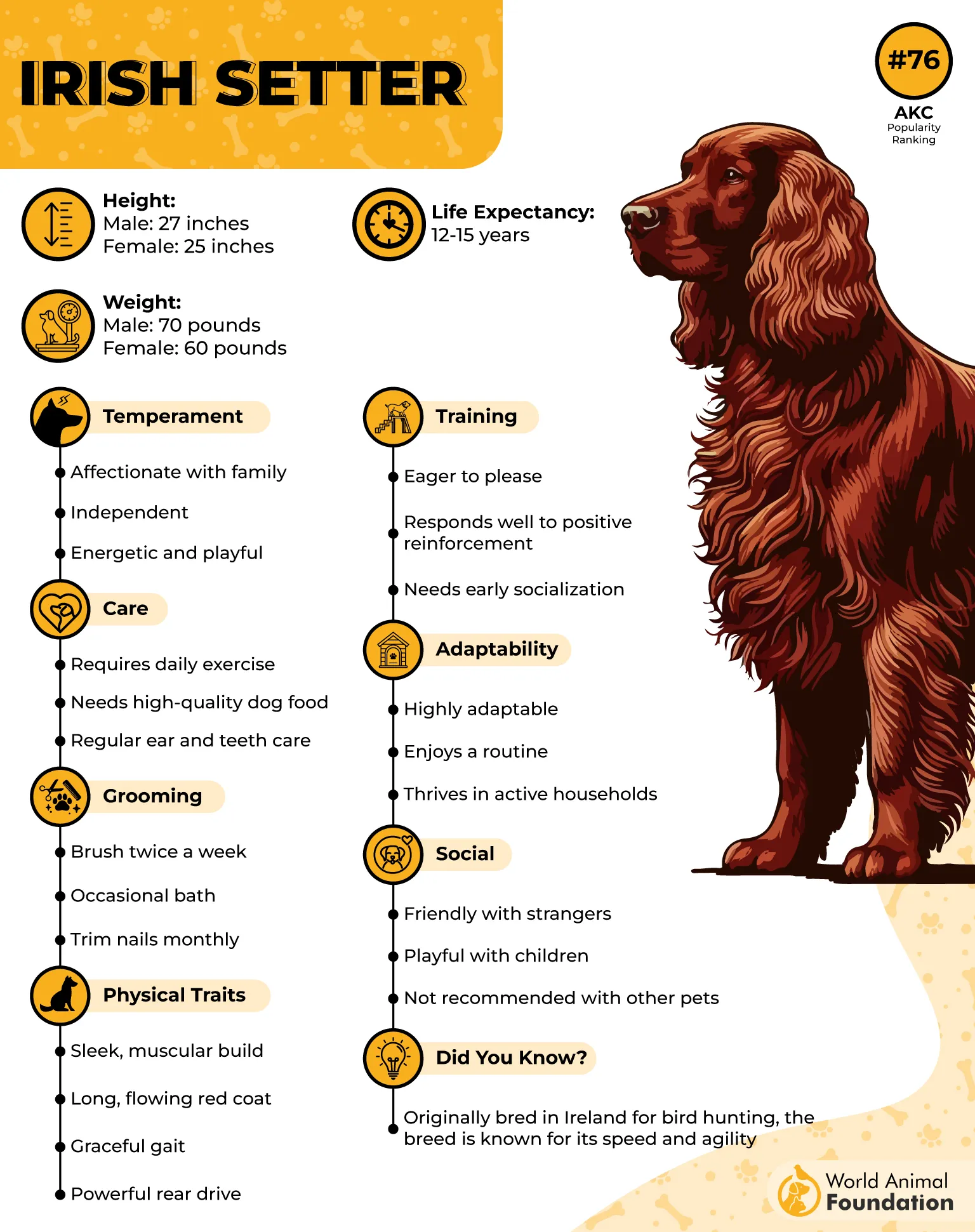
Need for mental and physical balance
While Irish Setters are energetic, they don’t get aggressive from boredom or frustration. As long as they’re provided with the proper mental stimulation and consistent exercise, like regular walks, they channel their energy positively, which reduces any potential for reactive behavior, as per Setter Pedia.
Social without the stress
Their love for human company makes them naturally social, but they aren’t prone to hyper-reactivity. They enjoy being around family and pets, often greeting everyone with friendly wagging and open posture. There’s no need for them to assert dominance or control their environment — they’re happy to be part of the action.
6. Pug

Pugs are renowned for their even-tempered personalities, rarely showing aggression toward other canines or people. Their gentle nature means they prefer snuggles and playtime to anything resembling confrontation. They don’t demand attention aggressively but instead attract affection with their lovable, playful demeanor.
Great for close quarters
One of the best traits of the Pug is their adaptability. Apartment living suits them just fine, as they don’t require vast amounts of space. They’re happy lounging around in small areas, making them ideal for people who want a low-maintenance, calm companion without a lot of fuss.
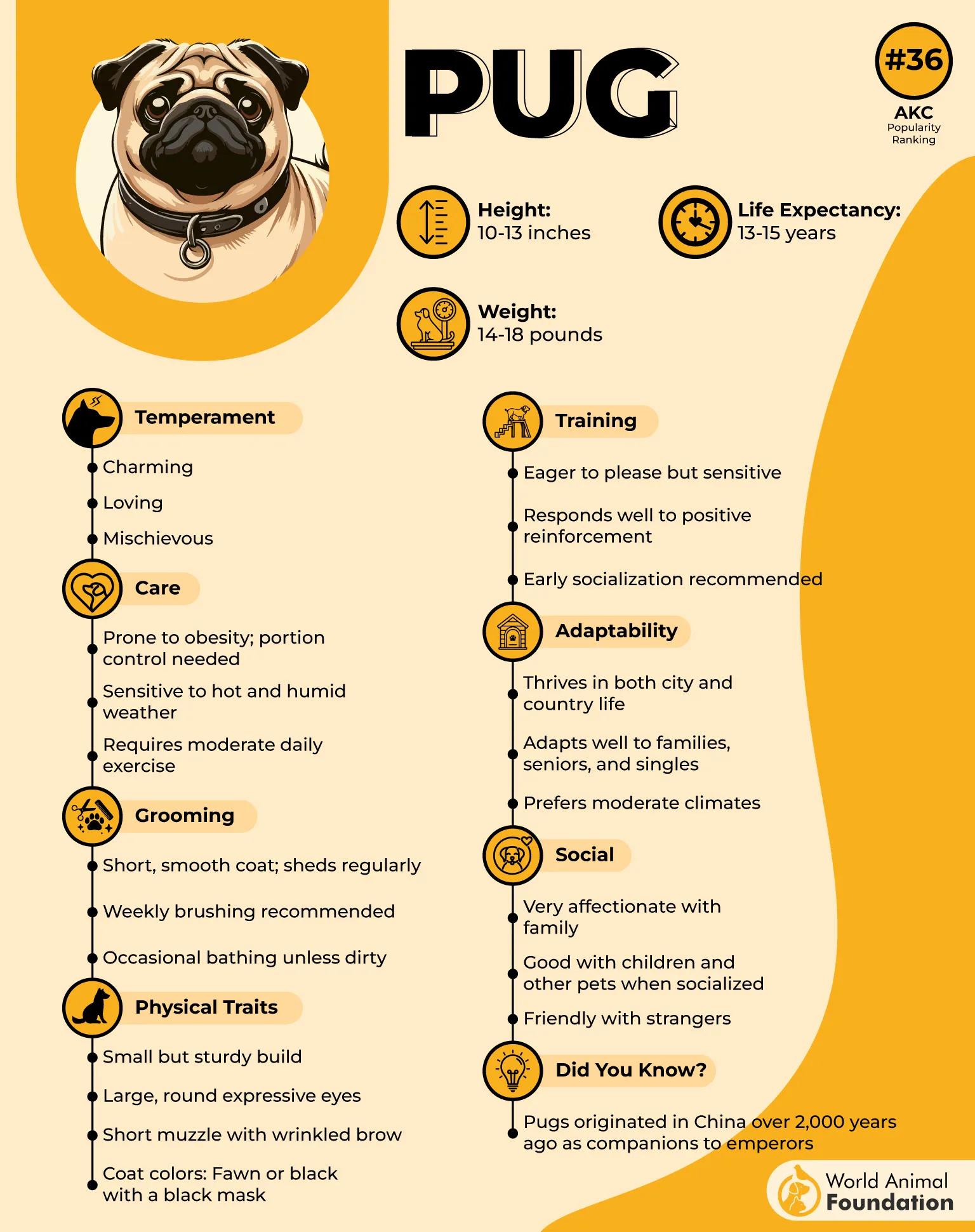
Steady, loyal best friend
Pugs bond deeply with their owners, showing unwavering affection and loyalty. As a best friend, they’re happy to simply be by your side, offering companionship without needing to assert themselves. Their calm nature allows them to enjoy the company of everyone around them, from kids to other pets.
Originally bred to be companions
Bred to sit on laps and provide companionship, Pugs aren’t interested in aggressive behaviors. Their history as a lap dog means they’re perfectly content just being around you and watching the world go by. There’s no urge to dominate or challenge other pets, just a desire to share in life’s simpler moments.
7. Beagle

Beagles have a special way of forming bonds with their beloved humans. They’re loyal and affectionate, but not in an overpowering way. They are often happiest sitting beside you, enjoying your company without demanding constant attention. Their calm demeanor makes them great companions for a relaxed home.
No aggression, just curiosity
Beagles are curious dogs by nature, but that curiosity doesn’t turn into aggressive dog behaviors. They explore their world with enthusiasm, but they’re more likely to greet another dog or person with a wagging tail than a snarl. Their social energy is fun and friendly, not combative.
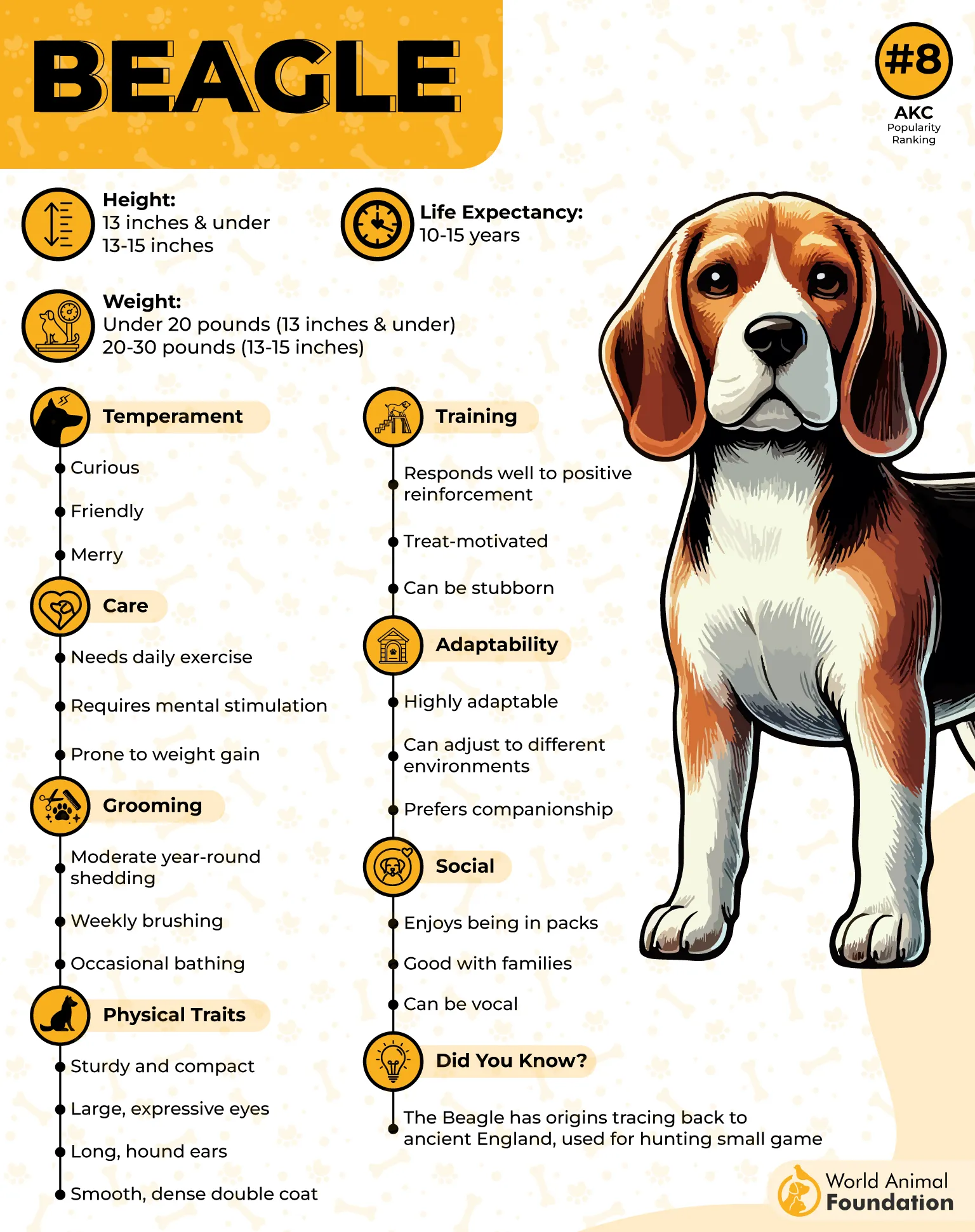
Easygoing with other pets
As Petplan claims, in households with multiple pets, Beagles typically get along well with other breeds. While their hunting instinct is strong, it doesn’t translate into territorial or aggressive behavior.
They understand the dynamics of the household and are happy to share the space with others, whether it’s another dog or even a cat.
Enjoying downtime with their family
Beagles are surprisingly chill when it comes to relaxing. They may love a good game of chase or a walk, but they’re just as content to enjoy spending time with their family, lounging, and hanging out. They’ll soak up the attention without demanding it, keeping their energy balanced and calm.
Conclusion
In a world full of noise and stress, the right dog can bring calm to your everyday life. While some aggressive breeds need firm boundaries, these dogs are naturally gentle.
Whether you’re a first-time dog owner or someone just craving peace at home, these breeds shine through with patience and heart. From hunting dogs like the Beagle to the giant dog Newfoundland, they show that size and instinct don’t always equal dog aggression.
With proper training, even more energetic pups can become perfect partners in peace. Choose love over intensity—your ideal companion might just be wagging at your feet.


